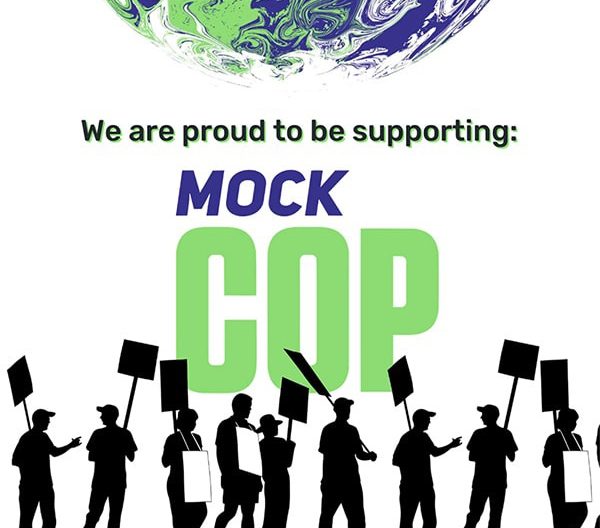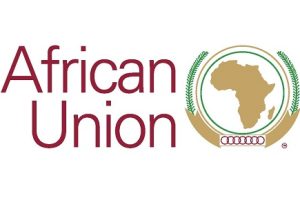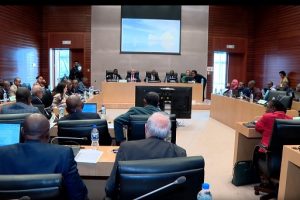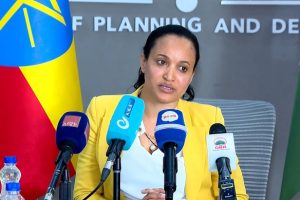
A group of young leaders under the Climate Leadership Initiative, established to empower young change-makers from the world’s most vulnerable developing countries, wrote an article entitled “Why the climate change negotiations cannot be a compromise.” The article, according to the authors, is aiming to scale up climate action to levels that meet the needs of the most vulnerable and a call to action for the world’s leaders in the 26th Conference of the Parties (COP 26).
Citing the recent report by the Intergovernmental Panel on Climate Change (IPCC) of the sixth assessment report of the Physical Science Basis, the young leaders stated that heatwaves, levels of precipitation, drought and tropical cyclones increase due to increase in global warming. These changes increase impacts on human societies and ecosystems and manifest in increasing losses and damages, both economic and non-economic in nature.
The youth from the Climate Leadership Initiative underlined that the report indicated the urgency of ambitious mitigation action to avoid and reduce further losses and damages to the extent possible. However, given the levels of warming already locked in, we will also need to scale up support to address loss damage, they argued.
The first idea that the youth leaders raise in their article is they ask for the recognition of the origins of climate change and how colonialism continues to affect the response to the climate emergency. They argued that climate change is affecting every region of the globe; however, its impacts are not experienced equally.
The world’s vulnerable people, communities and countries, those least responsible for human included climate change, are disproportionately impacted by the effects of climate change, the youth leaders argued adding the historical root for the problem is colonialism.
The youth stated that the rise in global emissions began during the industrial age when countries in the global North extracted raw materials from countries in the global South to support manufacturing and fuel development. Those processes, many of which continue today, allowed the global North to become richer and left the global South behind and the power imbalance between global North and South continued, the article by the youth underlined. Hence, they argued, the international action to ensure the work on climate change, including the international climate negotiations under the UNFCCC, must centre for the needs of the most vulnerable.
The youth also asks the international community the works on climate action must centre upon the needs of the most vulnerable, citing the Paris Agreement that recognizes the importance of averting, minimizing and addressing loss and damage.
According to the Climate Leadership Initiative, the link between averting loss and damage through mitigation, minimizing through adaptation and addressing loss and damage that is not avoided by those efforts is critical. “The more we mitigate by reducing greenhouse gas (GHG) emissions, the fewer climate change impacts will manifest. The more we adapt, the fewer residual impacts there will be in the form of loss and damage. We must ensure that vulnerable people, communities and countries have access to tools that enable them to become and remain resilient to climate change impacts and other shocks, such as the COVID-19 pandemic,” the youth argued. They stressed that the work on loss and damage focus on addressing loss and damage.
The youth from Climate Leaders Initiative also calls the actions on climate change to be inclusive. “There are a lot of concerns that the arrangements for COP 26 will exacerbate the power imbalance between developed and developing countries. Given the challenges of travelling during a global pandemic and procuring visas to the UK, many developing countries will be underrepresented at the COP. We must do everything we can to ensure that their voices are represented,” they reiterated.
They called for the establishment of access for virtual participation for those who are not able to travel to Glasgow and for an easy way for the representatives of developing country delegates who can travel to Glasgow.
In addition, according to the youth, the world should act together to create a new kind of global solidarity. “Negotiations are often portrayed as a compromise,” they argued adding “that cannot be the case for the international climate negotiations where compromises cost lives”
For the youth, it is possible to protect, conserve and rehabilitate ecosystems, but only with collective actions. By strengthening togetherness, it is possible to right past wrongs and moves towards a better world, they stated.
They also underlined the possibility to rise to new challenges where previously thought impossible. Establishing mutual aid groups within communities can support those most vulnerable and there is a chance to mobilize trillions of dollars, euros and pounds in previously unimaginable timeframes to protect lives that are valued. They call for the flourishing of global solidarity to limit global average warming to 1.5 degrees Celsius.
The youth believes that through the right kind of leadership, there is a chance to meet the climate challenges including the full breadth and scope of the needs of the most vulnerable. In addition, they advised the world to see opportunities rather than challenges to address the problems related to climate change. “We need leaders who do not see the multilateral negotiations as a zero-sum game but rather as an opportunity to build a renewed global solidarity on climate change,” the youth stated adding empowering others for the development of indigenous knowledge and practices.
As COP 26 comes at one of the most challenging times in history, the youth argued, it is time for action. To ensure an ambitious outcome on all fronts, the youth calls for revived global solidarity, establishing a roadmap for mobilizing support to meet the needs of the most vulnerable and to ensure inclusive participation to the extent possible. They call for the strong participation of all the 197 parties of the UNFCCC and ask for the involvement of all actors in the COP session.
The youth leaders argued that the global community should ensure the participation of the vulnerable developing countries in the COP session call to ensure inclusive participation. The youth asked that for the COP 26 presidency to ensure for those not able to travel to Glasgow will be able to participate virtually in discussions. According to the youth leaders, strong advocacy for the most vulnerable people, communities and countries in the global south, to be represented.
The youth leaders stressed that it is crucial to establish a new roadmap for mobilizing support to meet the needs of the most vulnerable communities. They stated that at CP 26 deliberations, the new finance goal will begin. It is necessary to ensure the fiancé goal represents the needs of vulnerable developing countries and the vulnerable people and communities and integrates the full scope of needs on mitigation, adaptation and loss and damage.
Scaling up action on mitigation, adaptation and Loss and Damage will require unprecedented levels of global solidarity, the youth noted. Only collective action is the solution to address the climate challenge, they argued.
BY DARGIE KAHSAY
THE ETHIOPIAN HERALD OCTOBER 19/2021





